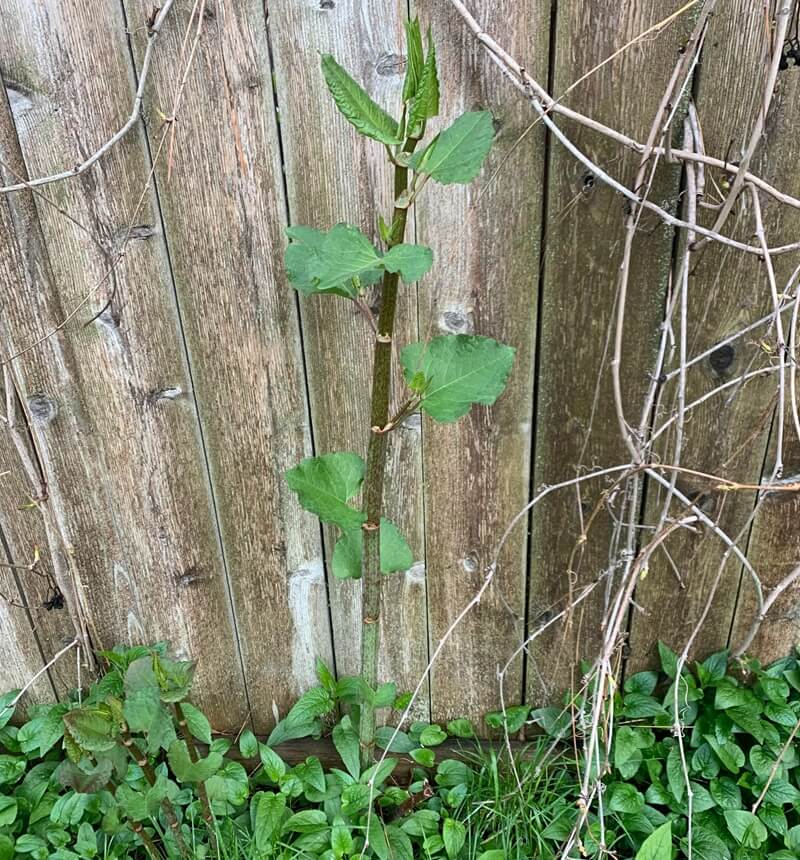One new homeowner in Spokane, Washington, recently got some bad news when they took to the r/Spokane subreddit for advice about a plant that had sprouted up in their backyard.
"Does anyone know what this plant is that popped up in my backyard (new home)?" the original poster wrote.
"Japanese knotweed. My house is littered with it. I can't actually get rid of it, invasive AF. Good luck!" a commenter quickly replied.


According to the Washington State Noxious Weed Control Board, Japanese knotweed is "a very aggressive escaped ornamental that is capable of forming dense stands, crowding out all other vegetation and degrading wildlife habitat." The Board added that it can create a fire hazard when dried during its dormant season, and that it is "prohibited to transport, buy, sell, offer for sale, or distribute" in Washington state.
"It can be pretty when it blooms but it's damn near impossible to get rid of. I cut down the [stalks] every few months and burn them all. I have piles and piles of [stalks] that make great kindling when they dry," wrote another commenter.
Invasive plant species can be any gardener's worst nightmare, as they compete with other plant species for resources and can be difficult to remove. Although the Washington homeowner didn't intentionally plant Japanese knotweed in their garden, in some cases, under-informed gardeners plant invasive species on purpose because they look nice, unaware of the future problems they will cause.
It's a great reminder to always do the research about whatever you are planning on introducing to your garden or yard — native species are always the best option.
In addition to needing limited maintenance, they require about half as much water, meaning they can save you hundreds of dollars on irrigation every year. They also support pollinators, without which more than one-third of the world's food crops would be in jeopardy. A partial lawn replacement, like with clover, provides similar perks, too.
Luckily, Japanese knotweed does come with at least one major benefit.
"So funny thing, Japanese Knotweed is actually REALLY GOOD in deserts like making your own ice cream! I saw a video on TikTok with a girl who makes vegan foods but from stuff she can get to her local area and I actually tried it out (was curious as a non vegan) and it was really good!" wrote another commenter.
The Philadelphia Orchard Project has a few disclaimers about consuming the plant, including making sure it hasn't been sprayed with harmful chemicals. However, the information might provide some solace as the OP works to combat the invasive growth.
Join our free newsletter for easy tips to save more, waste less, and help yourself while helping the planet.









